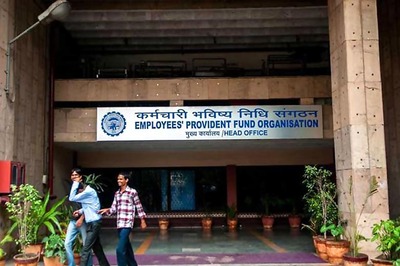
views
Our lives run on the basis of daily cyclic changes and humans are among the many organisms who have developed intrinsic 24-hour cycles called the circadian rhythm that enables us to perform all activities to their full potential. This sleep-wake cycle affects everything from your metabolism to your immune system, and there’s more to it than just sleep. Believe it or not, food intake or nutrition has a huge role to play in this circadian clock.
How meal timings affect your circadian rhythm
Just think back to the days when you ate too late after waking up or skipped breakfast and got too busy to get lunch while at work. Your energy levels drop down, your body feels a lot more stressed, and you’re bound to feel much more exhausted by the end of the day. This delay in nutrition disrupts your circadian rhythm, slows down your metabolism, induces lethargy, tends to accumulate fat in the body and has a high chance of leading to weight gain and obesity. The fact that weight gain and obesity are high-risk factors for many diseases, including heart disease, is well known.
And this is the reason why proponents of Ayurveda and ancient Chinese medicine have paid such focus on following precise meal timings every day as a means of staying healthy and fit. The Ayurvedic concept of dincharya or daily routine highlights the necessity of the body to be in complete balance with the rhythmic cycles of the day and promotes fixed timings for everything from meal times to exercise, sleep and other activities. In Chinese medicine, every part of the body has its own rhythm, and the chi (vital energy of the body as a whole) can only be maintained if you lead your life according to this rhythm.
What is chrono-nutrition?
Based on these two ancient systems of medicine, Dr Alain Delabos ? a French nutritionist ? developed chrono-nutrition in 1986 with his colleague Professor Jean-Robert Rapin. Chrono-nutrition involves sticking to specific meal times daily to ensure your metabolism synchronises with your biological or circadian clock.
A study published in Current Nutrition Reports in 2014 suggests that humans have some core clock genes, like Bmal1, Per1/2 and Cry1/2, which play a role in determining the circadian clock of the body through the regulation of the master clock, the suprachiasmatic nucleus (SCN), of the body. If you fix your meal timings as dictated by these clocks, your metabolism, hormone secretion and immune response work perfectly. If there’s desynchronization among the clocks, it can result in the development of metabolic disorders, obesity, chronic diseases, psychiatric disorders and even cancer.
Benefits of chrono-nutrition
Following the chrono-nutritional diet is very easy ? all you need to do is ensure you eat the same quality and quantity of food at the same time every day. Ideally, you should have your first meal (breakfast) an hour after waking up and your last meal (dinner or supper) should be had two hours before bedtime. The following are the benefits of following a chrono-nutritional diet:
- Fat loss and better weight management
- More regulated digestive system that works like a clock
- Proper absorption of nutrients from food and related benefits
- Strong immune system supported by a well-regulated hormone secretion system
- Reduced risk of high cholesterol, diabetes and cardiovascular diseases
For more information, read our article on Weight loss.
Health articles on News18 are written by myUpchar.com, India’s first and biggest resource for verified medical information. At myUpchar, researchers and journalists work with doctors to bring you information on all things health.


















Comments
0 comment